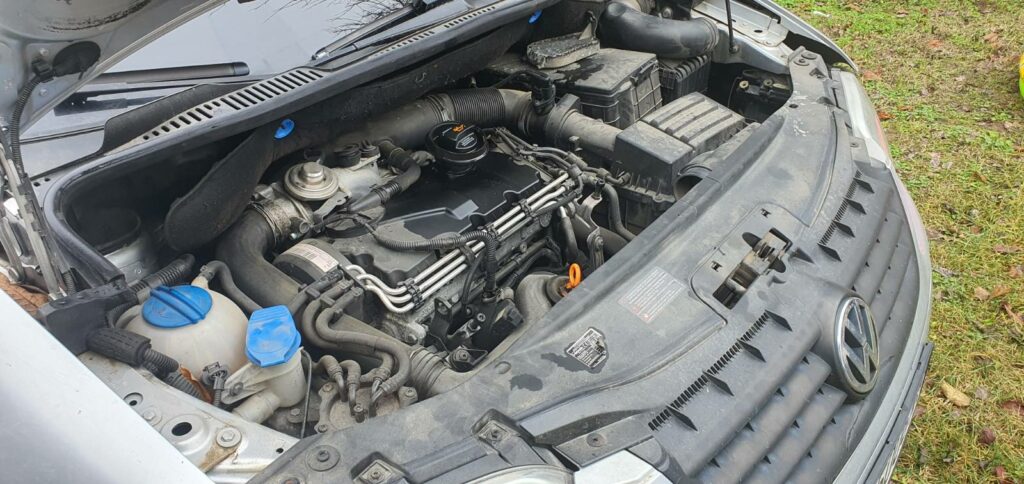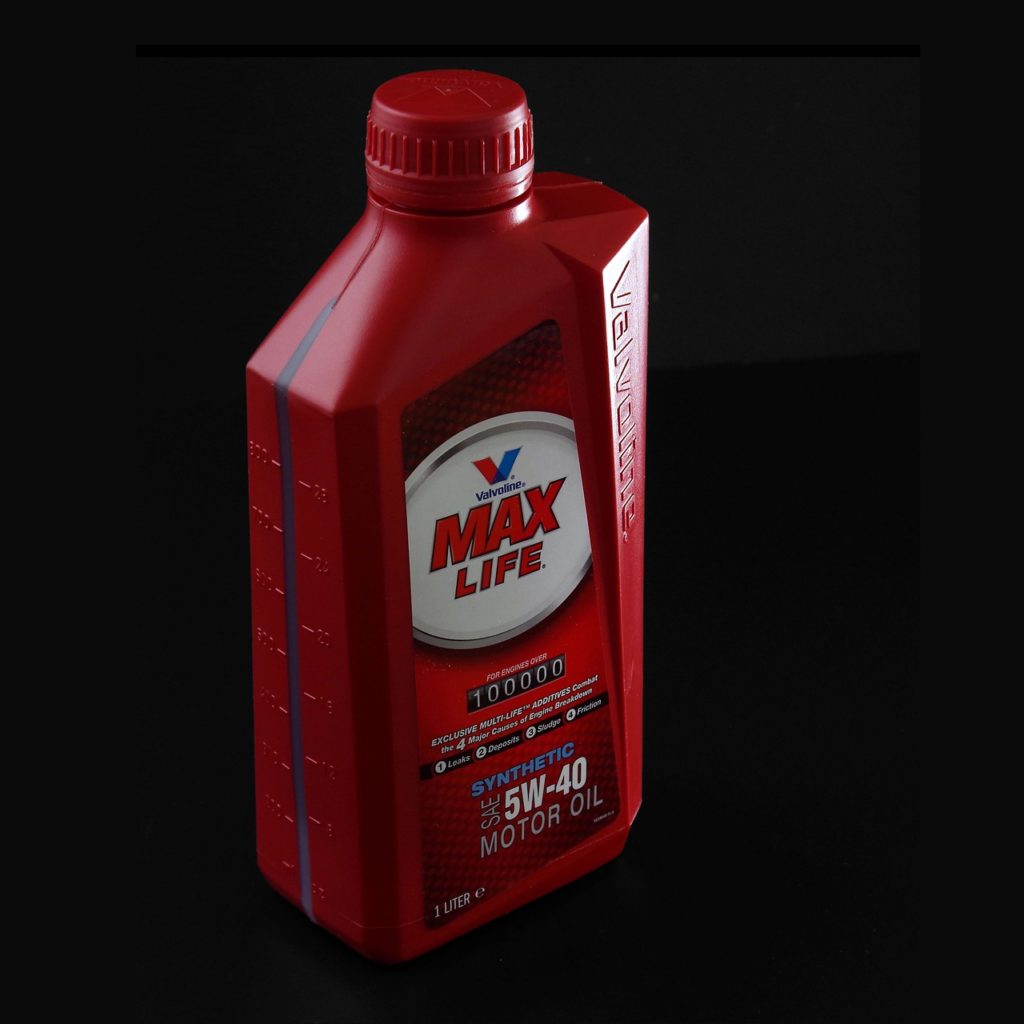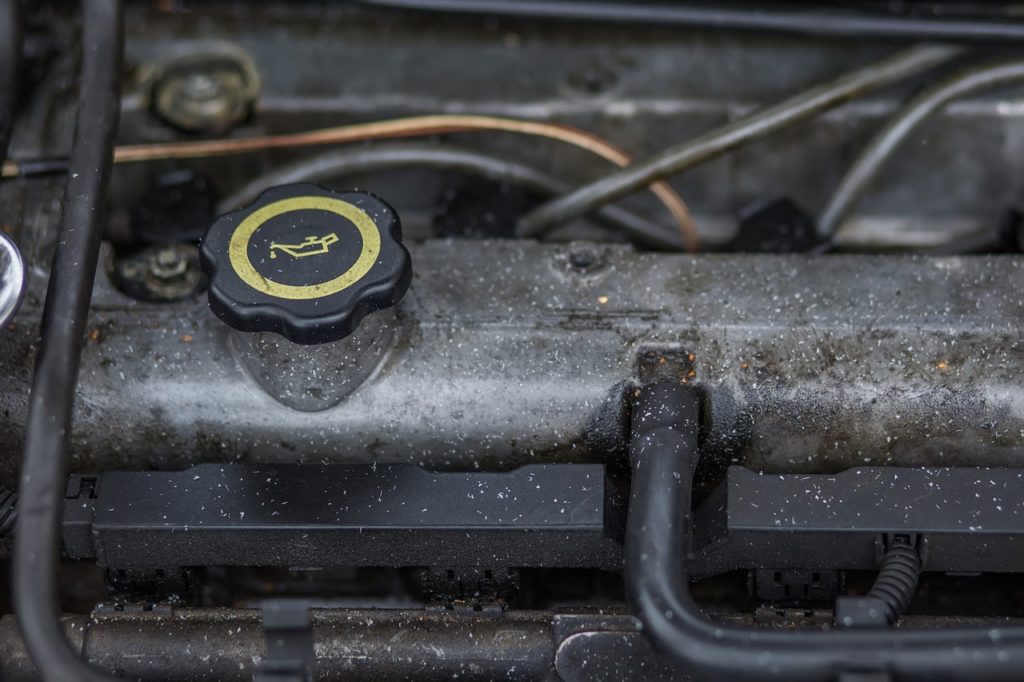Have you noticed a rattling noise in your car after an oil change? It’s a common issue that many vehicle owners encounter and it shouldn’t be overlooked.
This unsettling noise could be indicative of various underlying problems, including a worn-out oil pump, a dirty oil filter, or even the result of overfilling or underfilling engine oil.
Each of these issues can lead to inadequate lubrication in the engine, causing parts to rub against each other and create a rattling sound.
In this article, we’ll explore the possible causes of this post-oil change rattle and provide insights on how to diagnose and address the problem.
Key Takeaway
- Cars make a rattling noise after an oil change if there is no oil in the oil filter, a wrong oil filter was used, the wrong engine oil viscosity was used, there is not enough oil in the engine, the oil pump is worn out, or the oil filter is clogged.
- Needing an oil change can indeed cause your car to rattle.
- Adding new oil to old oil is generally acceptable as a temporary measure to maintain correct oil levels between oil change services, however, it’s not a substitute for regular oil changes as old oil can accumulate contaminants that can harm the engine.
6 Reasons Why a Car Is Making a Rattling Noise After An Oil Change

After an oil change, your car could be making a rattling noise. The rattling noises coming from the engine are associated with a lack of lubrication and your engine is telling you that something is wrong.
There are a couple of things why your car sounds different after an oil change:
1. No Engine Oil In The Oil Filter

The first and most common thing that people forget to do is to put oil in the oil filter before installing it. It is important that you fill your oil filter with engine oil because the oil pump will need to pump the oil into the filter and then into the engine.
If there is no oil in the oil filter when you start, the engine it will just start pumping air into the system and that can cause the lifters to make a rattling noise. Here is a complete guide on oil change.
2. Wrong Oil Filter

Another thing that can make your car engine louder after an oil change is installing the wrong oil filter. Installing the wrong oil filter will restrict the oil flow into the engine and this can cause rattling sounds coming from the engine. This can happen to anyone.
If you are a mechanic and your shop is full of vehicles that require an oil change, you can misplace the oil filter and install the wrong type. Or you could be a regular guy who is doing his first engine oil change and somehow you ordered the wrong oil filter.
3. Engine Oil With Wrong Viscosity

Adding the wrong oil can cause rattling noises in your engine. If you don’t use the manufacturer’s recommended viscosity, the oil is not thick or thin enough to run the engine properly and you can have an engine louder than before the oil change.
4. Not Enough Engine Oil

Not adding enough engine oil is also a very common mistake that people make. If you are a regular guy who wants to save some money by doing the oil change yourself, make sure that you read the user manual and see how much oil is required for your engine to run smoothly.
Also, make sure that the draining bolt is tight and that it isn’t leaking. You could also add more oil than needed and cause a so-called engine oil overfill. This can create a different set of issues.
5. Worn-out Oil Pump
A worn-out oil pump can indeed contribute to a rattling noise in your car, particularly after an oil change.
The oil pump plays a vital role in maintaining proper lubrication within the engine by circulating oil to different parts.
If the oil pump is worn out or failing, it may not be able to effectively circulate the oil, leading to inadequate lubrication.
6. Dirty Oil Filter
A dirty or clogged oil filter can certainly lead to a rattling noise in your car, especially after an oil change.
The primary function of the oil filter is to filter out any contaminants from the oil before it circulates through the engine.
When the oil filter becomes clogged with dirt, grime, or other debris, it can restrict the flow of oil.
Is it OK To Add New Oil To Old Oil?
Yes, it’s generally OK to add new oil to old oil in your car’s engine as a short-term measure.
However, it’s important to understand that this should not replace regular oil changes. Over time, engine oil breaks down and collects dirt and debris from the engine.
This leads to the formation of sludge, which can damage the engine over time. Adding new oil to old oil simply dilutes the old, dirty oil, but it doesn’t remove the contaminants.
Therefore, while you can add new oil to top up the levels if they are low, be sure to still carry out regular oil changes as per your vehicle’s maintenance schedule to keep your engine running smoothly and efficiently says Rusty Autos.
It is important that you change your engine oil and oil filter every 5,000 to 7,500 miles. Here is a YouTube video of a mechanic actually opening an engine that had engine oil added.
Can Needing An Oil Change Cause Your Car To Rattle?
Yes, needing an oil change can indeed cause your car to rattle. Engine oil plays a crucial role in lubricating the engine’s internal components, reducing friction, and preventing overheating.
Over time, this oil breaks down and collects dirt, becoming less effective at lubrication.
If the oil isn’t changed regularly, the dirty and degraded oil could cause inadequate lubrication of the engine parts.
This leads to increased friction between metal components, which can result in a rattling or knocking noise, especially noticeable when the engine is idling or running at low speeds.
Can Too Much Oil Cause Rattling?
Yes, having too much oil in your engine can cause rattling. While oil is essential for lubricating your engine’s parts, too much of it can create problems.
Overfilling the engine with oil can result in oil foam forming due to excessive agitation from the crankshaft.
This foaming can decrease the oil’s effectiveness in lubrication and cooling, leading to increased friction between parts and causing a rattling or knocking sound.
Excessive oil can also lead to higher pressure within the engine. This increased pressure can put additional stress on seals and gaskets, causing leaks and potentially leading to a rattling noise.
Is Engine Rattling Serious?
Engine rattling is indeed a serious issue. It can be caused by various factors including improper fuel octane, engine overheating, improper ignition timing, a failing hydraulic valve lifter, or even a loose or weak timing belt among others.
If you hear a rattling noise while driving, it’s crucial not to ignore it as it could be a sign of a significant mechanical problem. It’s recommended to seek help from a professional who can identify the source of the noise and prevent further damage.
FAQs
Q: Can using the wrong type of oil cause a rattling noise?
A: Yes, using the wrong type of oil can potentially cause a rattling noise in your car’s engine. If the oil you used is too thin or has a different viscosity than what is recommended for your specific car model, it can affect the engine’s performance and result in unusual sounds. It is essential to use the oil grade and type specified in your car’s owner manual for optimal performance and to avoid potential issues.
Q: Is a rattling noise after an oil change dangerous?
A: While a rattling noise after an oil change is not normal and should be investigated, it does not necessarily mean that it is dangerous. However, it is essential to have the problem diagnosed and resolved promptly to prevent any potential damage to the engine or other components. Ignoring the rattling noise could lead to more significant issues down the line, so it is best to have it checked by a professional mechanic.
Q: How can I determine if the rattling noise is coming from the engine?
A: To determine if the rattling noise is coming from the engine, you can try to pinpoint its exact location. Listen carefully to identify if the noise is coming from the engine compartment. Additionally, you can check if the noise becomes louder or changes when you accelerate or decelerate. If you are unsure, it is best to have a mechanic inspect your car to accurately diagnose the source of the rattling noise.
Q: Can a loose heat shield cause a rattling noise after an oil change?
A: Yes, a loose heat shield can cause a rattling noise after an oil change. Heat shields are designed to protect various components from excessive heat, and if they become loose or damaged, they can vibrate and produce a rattling sound. Often, the rattling noise caused by a loose heat shield can mimic an engine-related issue. It is advisable to have a mechanic inspect and secure or replace the heat shield if necessary.
Q: Should I continue driving my car if it’s making a rattling noise after an oil change?
A: It is not recommended to continue driving your car if it is making a rattling noise after an oil change. While the cause of the noise may not be immediately dangerous, ignoring the issue can lead to more severe problems. It is best to have the noise investigated by a professional mechanic and follow their advice on whether it is safe to drive the car or if it needs immediate attention.
Q: Can running the car with low oil cause a rattling noise?
A: Yes, running a car with low oil can potentially cause a rattling noise. When the engine does not have enough oil, the metal components can rub against each other, creating a rattling or knocking sound. Low oil levels can also lead to increased friction and heat, which can cause further damage to the engine if left unresolved. It is crucial to regularly check and maintain the proper oil levels in your car to avoid such issues.
Q: How much will it cost to fix a rattling noise after an oil change?
A: The cost to fix a rattling noise after an oil change can vary depending on the underlying cause. If the issue is related to an incorrectly installed oil filter, it may be a relatively simple and inexpensive fix. However, if the noise is due to a more significant engine problem or damaged components, it could be more costly to repair. It is best to have a mechanic evaluate the situation and provide an estimate of the repair costs.
Q: Can a clogged oil pump cause a rattling noise?
A: Yes, a clogged oil pump can potentially cause a rattling noise in your car’s engine. If the oil pump is unable to circulate oil properly due to a clog or blockage, it can result in insufficient lubrication and increased friction between engine components. This friction can lead to unusual sounds, including rattling or knocking noises. It is crucial to have the oil pump inspected and repaired or replaced if necessary to avoid further engine damage.
Q: Can a worn-out timing chain or belt cause a rattling noise after an oil change?
A: Yes, a worn-out timing chain or belt can cause a rattling noise after an oil change. The timing chain or belt is responsible for synchronizing the movements of the engine’s internal components. If these components become worn or damaged, they can produce a rattling sound. It is important to have the timing chain or belt inspected and replaced if necessary as they play a crucial role in the proper functioning of the engine.
In Conclusion
In conclusion, a car making a rattling noise after an oil change is a situation that should not be ignored.
This noise could stem from various issues, including a worn-out oil pump, a dirty oil filter, or improper filling of the engine oil.
These issues can lead to inadequate lubrication, causing metal components in the engine to rub against each other and produce a disturbing rattling noise.
It’s essential to promptly seek professional help when this happens.
A mechanic can diagnose and rectify the problem, helping to maintain your vehicle’s performance and prevent more serious damage down the line.
